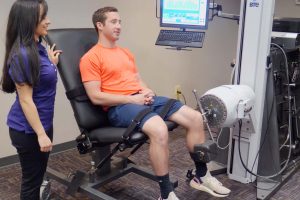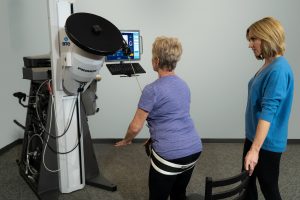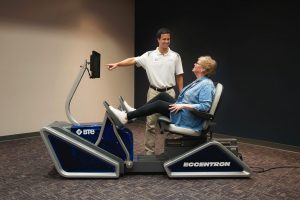
Updates and Resources from AOTA, APTA, and NATA During COVID-19
Practice ManagementThe word on every practitioner’s mind today is telehealth. AOTA has been keeping its members informed of the latest developments from CMS regarding who can perform and get reimbursed for telehealth services.
A quick reference for rehab professionals: telehealth, education, staying connected
It seems like every day brings a new development in the COVID-19 pandemic. We’re all finding our new normal at work and at home. These days, it’s especially important to stay connected and informed with the ongoing events that can have direct impacts on our lives.
That’s why I’ve assembled the latest professional updates and resources for our community of Occupational Therapists, Physical Therapists, and Athletic Trainers on TherapySpark.
Click to jump to each section for updates from the American Occupational Therapy Association, the American Physical Therapy Association, and the National Athletic Trainers Association.
AOTA Updates and Resources
The word on every practitioner’s mind today is telehealth. AOTA has been keeping its members informed of the latest developments from CMS regarding who can perform and get reimbursed for telehealth services. According to a recent announcement, Occupational Therapists and Physical Therapists are now covered and reimbursed by Medicare for telehealth services. This victory comes after years of advocacy from AOTA, APTA, and their supporters.
Specific aspects of implementing telehealth for occupational therapy are up to the state regulatory agencies to decide. AOTA has provided this chart that details each state’s updated policies regarding licensing, telehealth, Medicaid and private insurance.
AOTA’s List of Telehealth CPTs for Private Payers
According to AOTA, Occupational Therapists are allowed to use evisit Healthcare Common Procedure Coding System codes. These codes include the following Medicare G-codes:
- G2061, qualified nonphysician health care professional online assessment, for an established patient, for up to seven days, cumulative time during the seven days; five to ten minutes
- G2062, qualified non-physician healthcare professional online assessment and management service, for an established patient, for up to seven days, cumulative time during the seven days; 11–20 minutes.
- G2063, qualified nonphysician qualified health care professional assessment and management service, for an established patient, for up to seven days; cumulative time during the seven days, 21 or more minutes.
OTs can also bill for evisits using the following CPT codes for private payers:
- CPT 98970, qualified nonphysician health care professional online digital evaluation and management service, for an established patient, for up to seven days, cumulative time during the seven days; five to ten minutes
- CPT 98971, online medical evaluation for 11 to 20 minutes
- CPT 98972, online medical evaluation for 21 or more minutes
AOTA provides regular announcements on this COVID-19 updates page.
APTA’s Physical Therapy Recommendations for COVID-19
Like AOTA, APTA is also keeping its members up to date on the latest in telehealth for rehabilitation. APTA urges PTs to check with their state guidelines on performing telehealth. A recent article details four ways to get the latest updates on telehealth for physical therapy.
In a recent post, APTA calls Physical Therapists to focus on patients with cardiorespiratory conditions. With ventilators on short supply in many hospitals, Physical Therapists have an essential role to play in helping this equipment become available.
APTA recommends getting respiratory patients ready for discharge and restoring all other patients’ mobility and function as soon as possible. They also state that physical therapy may reduce the demand for ventilators, thus providing better outcomes for the patient and healthcare facilities.
If your patients are recovering from weakened respiratory systems, consider emphasizing low-strain exercises like eccentrics. For example, the Eccentron provides closed-chain, eccentric-only exercise that uses 80% less oxygen than concentric modalities. And, recent research shows that patients achieve 4x higher muscle activation with the Eccentron, compared to other eccentric modalities.
The Eccentron can help cardiorespiratory patients or those with a long period of non-mobility regain their strength and confidence. To learn how, watch our latest video treatment guidelines on eccentric physical therapy for cardiorespiratory / COVID-19 recovery.
APTA’s Letter From the President
Sharon Dunn, PT, PhD, published a letter of support to the PT community last month. In it, she defended the organization’s previous recommendation that Physical Therapists “use their professional judgment to determine when, where, and how to provide care, with the understanding this is not the optimal environment for care, for anyone involved.”
After receiving criticism that this recommendation was not adequate, she points out that each state, locality, and facility are facing different aspects of the outbreak and have different policies.
Additionally, recommendations from the CDC, CMS and federal government have evolved quite rapidly during this time. Therefore, PTs must act on their best judgement and make decisions based on each individual’s needs, just as they would for any other care plan.
She writes, “The COVID-19 outbreak changes the factors we must consider in our professional evaluation, but it does not change our basic responsibility to do what is best for our patients. As licensees, physical therapists are empowered and obligated to make those decisions. We are going through this together, day by day, doing our best to make a positive impact on society in a moment in time when there are no easy solutions.”
Volunteer With APTA Engage
While clinic closures and short staffing abound, APTA is looking meet the needs of providers and facilities alike. If you are a PT or PTA looking to lend a hand, you can volunteer with APTA Engage to help a clinic in your community. Alternately, if your clinic needs extra help these days, APTA Engage can match you with a local volunteer who’s ready to work.
Stay informed with the latest developments as APTA updates their COVID-19 announcement page regularly.
NATA Online Opportunities
NATA has provided several resources for its members. Because many Athletic Trainers work in a school setting, they need online resources to continue teaching and learning remotely. To answer this need, NATA gives its members 10 contact hours of free educational content online. Members can use this for their own professional development, or for instructional classroom applications.
In addition to online learning, NATA is keeping Athletic Trainers connected by sharing stories. ATCs with a fun, inspiring, or helpful story about working during COVID-19 can share pictures and experiences with ATCs in Action.
NATA’s Message: Practice Self Care
In a recent letter, ATs Care Commission Chair, David A. Middlemas, EdD, AT, CCISM acknowledged Athletic Trainers of the emotional and psychological effects of the pandemic. He reminded ATs to be mindful that stress can negatively impact our ability to process information and emotions, sleep, fatigue, and social interactions.
This guide explains the effects that a critical stressful incident can create. It also details steps to take care of your physical, cognitive, behavioral, emotional, and spiritual health in times of increased stress.
Volunteer with NATA
NATA has teamed up with a per-diem staffing organization to help connect Athletic Trainers with understaffed facilities across the country. Learn more about how you can volunteer with NATA during COVID-19 here.
Stay Connected With Your Professional Community
We all know how important it is to stay connected and informed during times of uncertainty. If you haven’t already, I encourage you to subscribe to TherapySpark for monthly updates and resources for OTs, PTs, and ATCs.
Colleen Isaiah
TherapySpark Editor
BTE




